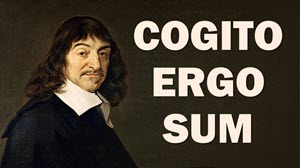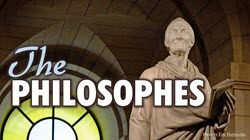The fourth unit in my AP European History course focuses on the transition toward a more scientific mindset in early modern Europe as a result of the Scientific Revolution and the Enlightenment.
The Scientific Revolution: An Introduction |
COMPLETE BEFORE
MONDAY, 11/30 |
|
One of the biggest shifts in thinking that occurred in Europe in the 17th and 18th centuries is a transition from accepting traditional knowledge on faith to challenging this knowledge and believing only what can be supported by evidence - either by logic (rationalism) or observation (empiricism).
Textbook ReadingsKagan, 417-424
AND/OR Wood, 148-150 E-Lecture Available on YouTube |
PowerPoint Presentation(s)Documents and Materials
|
A Revolution in ReasoningBefore the Scientific Revolution, philosophers relied exclusively on Aristotle's deductive reasoning to solve problems and there was no "scientific method" in the sense that we think of it today. Sir Francis Bacon promoted inductive reasoning as a way for natural philosophers (scientists) to pursue truth in the natural world.
|
|
The Scientific Revolution: Continued |
COMPLETE BEFORE
WEDNESDAY, 12/2 |
One of the biggest debates that defined the Scientific Revolution was the debate over whether the universe was geocentric (with the earth at the center of the universe), as was traditionally believed, or heliocentric (with the earth revolving around the sun).
Textbook ReadingsKagan, 428-438
AND/OR Wood, 150-157, 137-138 Video Lecture |
Documents and Materials
|
The British Agricultural Revolution |
ON YOUR OWN BEFORE
FRIDAY, 12/4 |
|
The British Agricultural Revolution involved the application of scientific principles and emerging capitalist practices to agricultural production, creating a more efficient and commercialized system of agriculture that could feed more people than ever with less people having to farm.
Textbook ReadingsKagan, 455-457
AND/OR Wood, 207-209 E-Lecture Available on YouTube |
PowerPoint Presentation |
Introduction to the Enlightenment
The Enlightenment was an 18th century intellectual movement that has had a profound influence on Western philosophy. It built on the foundation of the Scientific Revolution and took it a step further in an effort to apply scientific principles to society. In addition to watching these introductory videos and reading the primary source by Immanuel Kant, it would be useful to consult pages 502-504 of your Spielvogel text.
|
Primary Source-Based LectureIn this lecture, I explain the main points of Immanuel Kant's classic essay, "What is Enlightenment?" The primary source is included here.
|
The Philosophes: Thinkers of the Enlightenment |
DATE PENDING
|
This five part lecture focuses on the philosophes, or thinkers of the Enlightenment, highlights the contributions and accomplishments of Isaac Newton, John Locke, Voltaire, Diderot, Montesquieu, Rousseau, Immanuel Kant, and Adam Smith.
Newton and Locke: Foundations of the Enlightenment
Voltaire
Denis Diderot
Political Theory: Montesquieu and Rousseau
Immanuel Kant and Adam Smith
|
PowerPoint PresentationEnlightenment RapI'm not a rapper... but I made a rap about the Enlightenment.
|
The Enlightenment and Religion |
IN CLASS
WEDNESDAY, 12/10 |
One of the key defining features of the Enlightenment was the challenging of traditional religious practices. Philosophes criticized not only a corrupt Church structure, but also the revealed doctrines of Christianity, Judaism, and Islam. Voltaire and others advocated Deism, which is a belief in a Supreme Being who governs a universe based on natural law. These short lectures will explain enlightenment perspectives on religion - especially that of Voltaire.
|
|
My talk on Voltaire and Religion, which I recorded in the wake of the terrorist attacks in Paris, is based on some of Voltaire's writings that can be found in his Philosophical Dictionary. The excerpt on religion can be accessed here: https://history.hanover.edu/texts/voltaire/volrelig.html
|
Enlightened Absolutism
|
DATE PENDING
|
|
Enlightened absolutists attempted to implement enlightened reforms through toleration of religious minorities, reform of governmental and societal institutions, absolute rule, and patronage of the philosophes. Frederick the Great of Prussia, Catherine the Great of Russia, and Joseph II of Austria all tried, to varying degrees, to use their positions of power to aid the progress of the Enlightenment from the top down.
Textbook ReadingsKagan, 533-543
AND/OR Wood, 270-275, 278-279 E-Lectures Available on YouTube
|
PowerPoint PresentationDocuments and MaterialsClick to set custom HTML
|











